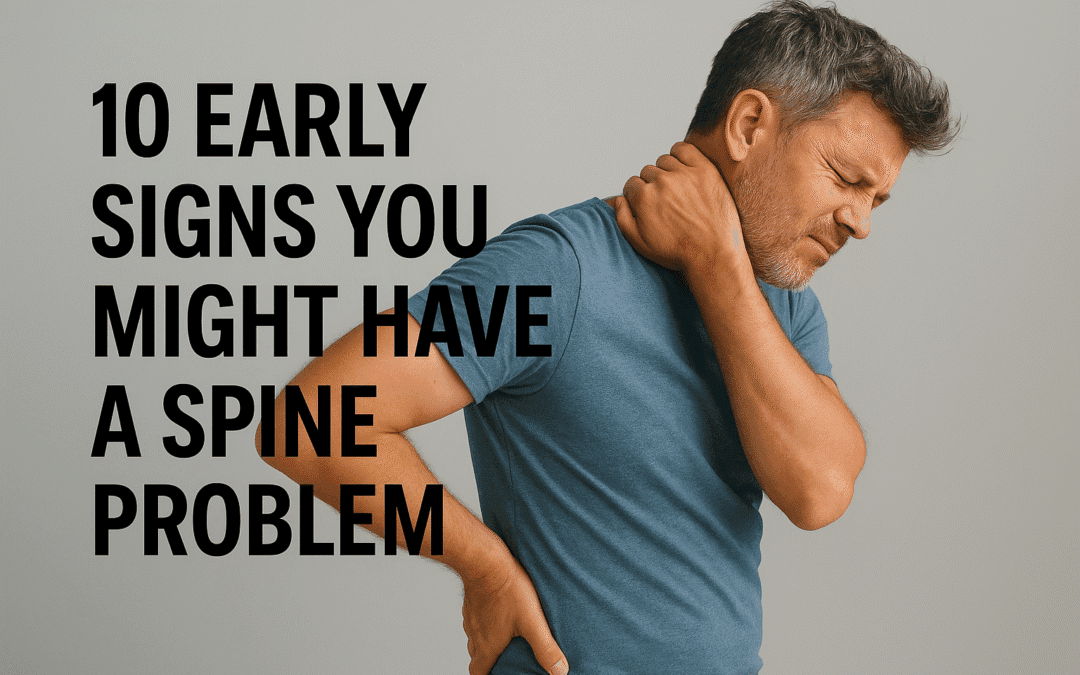Your spine is the backbone of your body, supporting movement, flexibility, and overall posture. Detecting issues early can prevent severe complications. Here are the 10 early signs you might have a spine problem that everyone should watch for.
1. Persistent Back Pain
One of the most common indicators of a spine problem is persistent back pain. It may start as mild discomfort but gradually worsen over time, affecting daily activities. Back pain is often the first symptom that brings people to an orthopedic specialist.
2. Stiffness and Reduced Flexibility
Experiencing stiffness in the neck, upper back, or lower back can indicate underlying spinal issues. Limited mobility, difficulty bending, or twisting are early warning signs. Spinal stiffness can interfere with normal life and require medical attention.
3. Numbness or Tingling Sensations
Numbness, tingling, or a “pins and needles” sensation in the arms, legs, or fingers can signal nerve compression due to spinal misalignment or herniated discs. Early detection can prevent permanent nerve damage.
4. Weakness in Limbs
Muscle weakness or sudden difficulty in lifting objects may indicate spinal nerve involvement. Weakness in the arms or legs is often linked to spinal cord compression or degenerative spine conditions.
5. Poor Posture or Misalignment
Noticeable changes in posture, like slouching or a hunched back, can be early signs of a spinal deformity. Poor posture often leads to chronic back pain and further spinal complications if ignored.
6. Difficulty Walking or Balancing
If you experience frequent tripping, difficulty maintaining balance, or an unsteady gait, it may be due to spinal instability. Problems with walking can indicate nerve involvement in the spine.
7. Radiating Pain in Limbs
Pain radiating from the back to the shoulders, arms, buttocks, or legs can be a sign of sciatica or a pinched nerve. Early treatment can prevent worsening symptoms and improve mobility.
8. Reduced Sensitivity or Reflexes
Loss of reflexes or reduced sensation in certain body areas may indicate spinal nerve damage. This early warning sign often appears before severe pain sets in.
9. Chronic Headaches or Neck Pain
Frequent headaches accompanied by neck stiffness could point to cervical spine issues. Misalignment or degenerative changes in the neck can affect the nervous system and overall health.
10. Difficulty Performing Daily Tasks
If routine activities like sitting, standing, or lifting cause pain, your spine may be affected. Degenerative spinal conditions can gradually impair daily functioning if not addressed promptly.
Preventive Measures for a Healthy Spine
Maintain proper posture while sitting, standing, or lifting.
Exercise regularly to strengthen core and back muscles.
Avoid prolonged sedentary behavior and take frequent breaks.
Use ergonomic furniture to support spine alignment.
Seek medical attention at the first sign of persistent pain or discomfort.
Conclusion
Early detection is crucial for spine health. Ignoring minor symptoms can lead to severe problems. Consult a specialist if you notice any warning signs.
A strong, flexible spine ensures a better quality of life. Regular check-ups can prevent chronic pain and spinal deformities.


Recent Comments